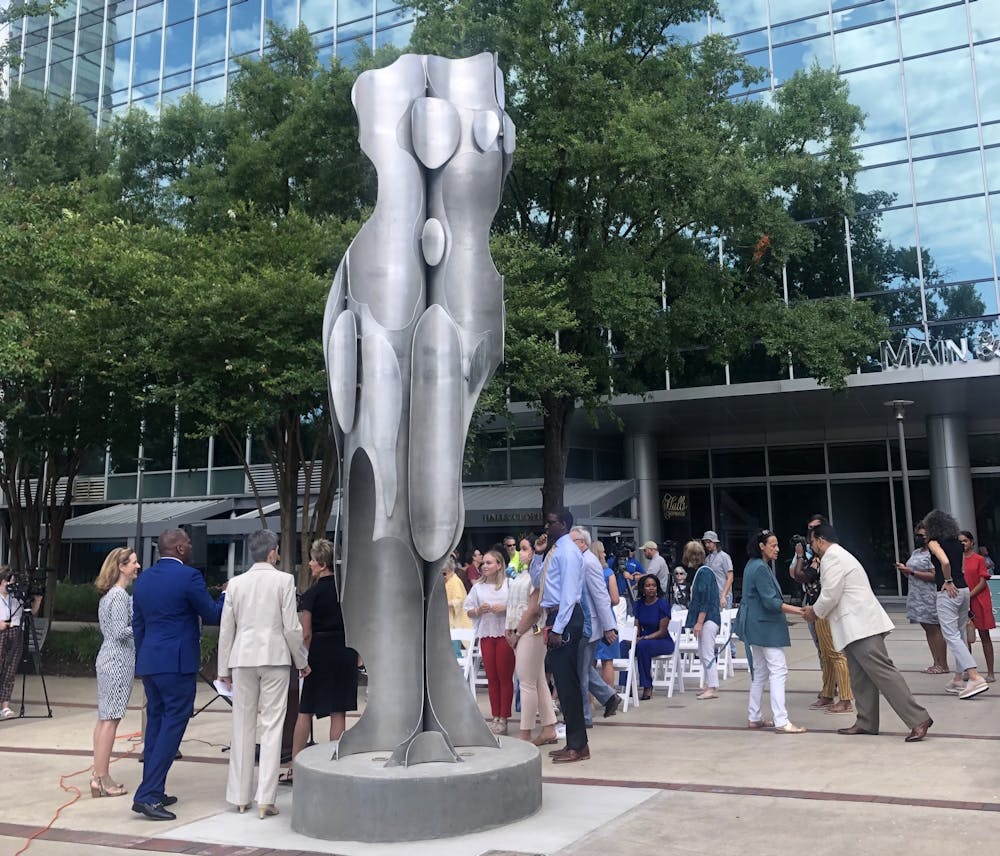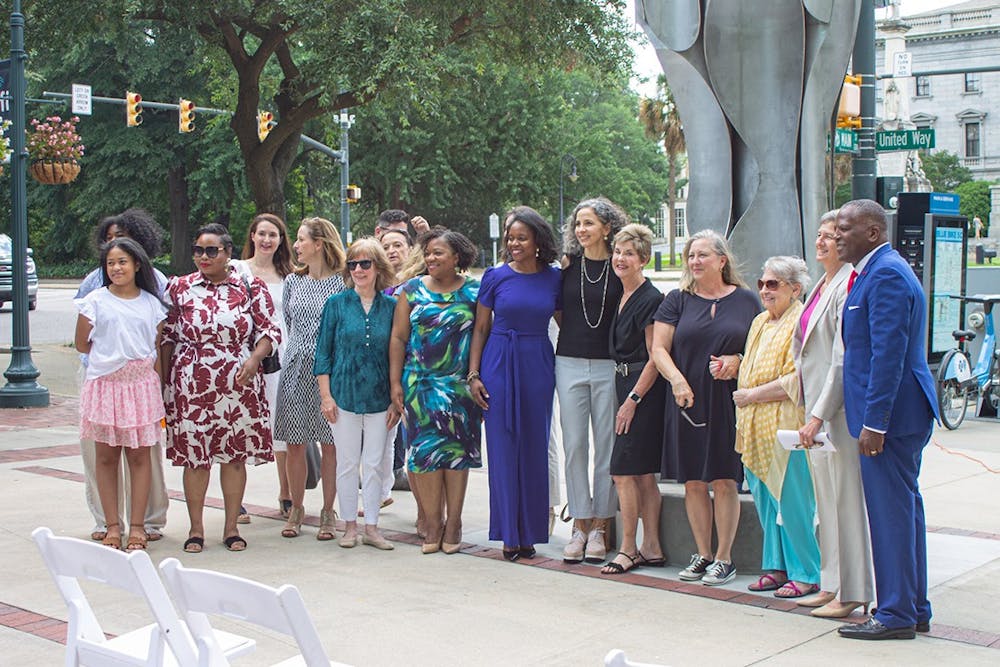It all started with the gift of a subway map.
Rachel Hodges, former first lady of South Carolina, received a hard copy of a Manhattan subway line map from her son. It was unchanged except for the names of the subway stops: The stops were all altered to be named after women. (As opposed to the original names, which almost all honored men.)
The doctored map, made by feminist writer Rebecca Solnit and expanded upon in Solnit's tandem essay titled 'City of Women,' sought to illuminate the lack of representation of women in cities, Hodges said. Solnit's fake map had a rousing effect, inspiring Hodges to start an initiative to spur female empowerment in South Carolina.
This initiative, now titled Columbia City of Women, aims to honor impactful women, uplift female achievement and promote feminine power through local community awareness.
The initiative is partnered with Historic Columbia and the Women’s Rights and Empowerment Network, local organizations that share joint concerns and awareness of the historically suppressed and ignored population of women.
“(Hodges) thought, and we agreed, wouldn’t it be cool if (Historic Columbia and WREN) could team up to do a project that recognizes the women of Columbia's past and present, who have shaped our city so that we can be inspired by their stories, and think about how we can create a city and a state that will be more welcoming, more equitable and more inclusive for everyone who lives here,” said Ann Warner, CEO of WREN.
Columbia City of Women's successes include the installation of the "Architecture of Strength" on Main and Gervais Street, an immense, abstract sculpture that stands 17 feet tall.
It is meant to represent “all women, all ethnicities, all looks, all shapes, all sizes,” and serve as a “physical demonstration of the power of women at this corner of commerce and politics and culture, in the heart of the city," Hodges said.

Since the establishment of the Columbia City of Women in 2018, the initiative has publicly honored the contributions of a diverse group of 28 women, alive and deceased. Honorees are nominated by local community members, and the effort encompasses a wide array of women with different backgrounds and skills in order to equitably represent the contributions of women in South Carolina.
The honorees are nominated under some categories that "align with the pillars of the Women's Rights and Empowerment Network," according to Robin Waites, the executive director of Historic Columbia. The categories include advancement of economic opportunity for women, civic engagement and leadership and providing freedom from violence. Women can be nominated in areas like health care and arts and culture as well.
“We want to be sure that we're representing a broad segment of women's contributions. We also look at time periods that they represent or where they worked, and try to also balance, kind of, historic women," Waites said. "So we want to be sure, again, that we're showing the full spectrum of contributions.”
Columbia City of Women's most recent honoree is M. Malissa Burnette, a civil rights lawyer and advocate against domestic abuse.
Burnette is a USC law school alum who worked to uncover local rates of domestic abuse, according to the Columbia City of Women's website. Currently, Burnette works as a partner at the all-women law firm Burnette, Shutt & McDaniel, which she co-founded in 2017.
“(Burnette) is certainly a powerful example of someone who took her education and strived to use it to make Columbia a better place by being an exceptional lawyer and providing assistance to people who needed it,” Hodges said.
As its work continues, Waites said the Columbia City of Women will continue to recognize the significant impact women have had on the city through engagement on social media, events on official days celebrating female empowerment and guided tours that take participants to public sites related to women.
“All you have to do is read and go stand at the (Architecture of Strength) monument and feel empowered, right? For a young woman to say that this made her pause and think a moment about what she's capable of for her future. I think that's success of what this program is trying to do,” Hodges said.

